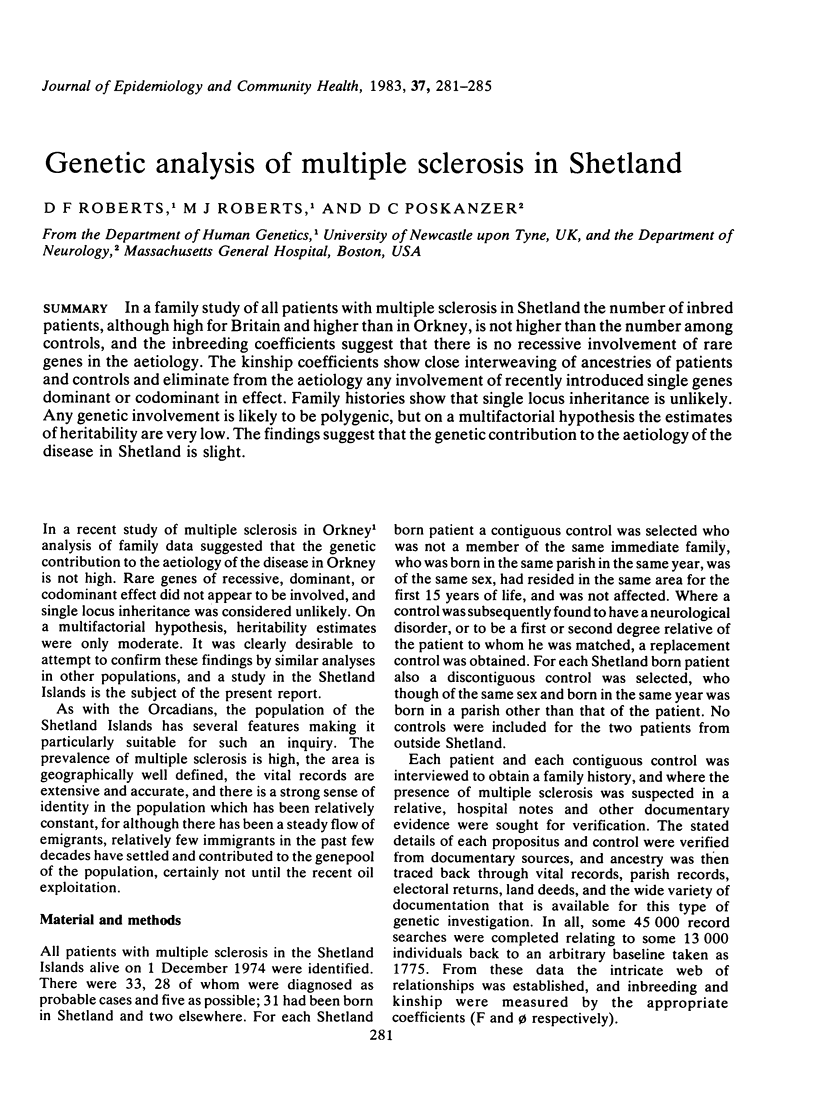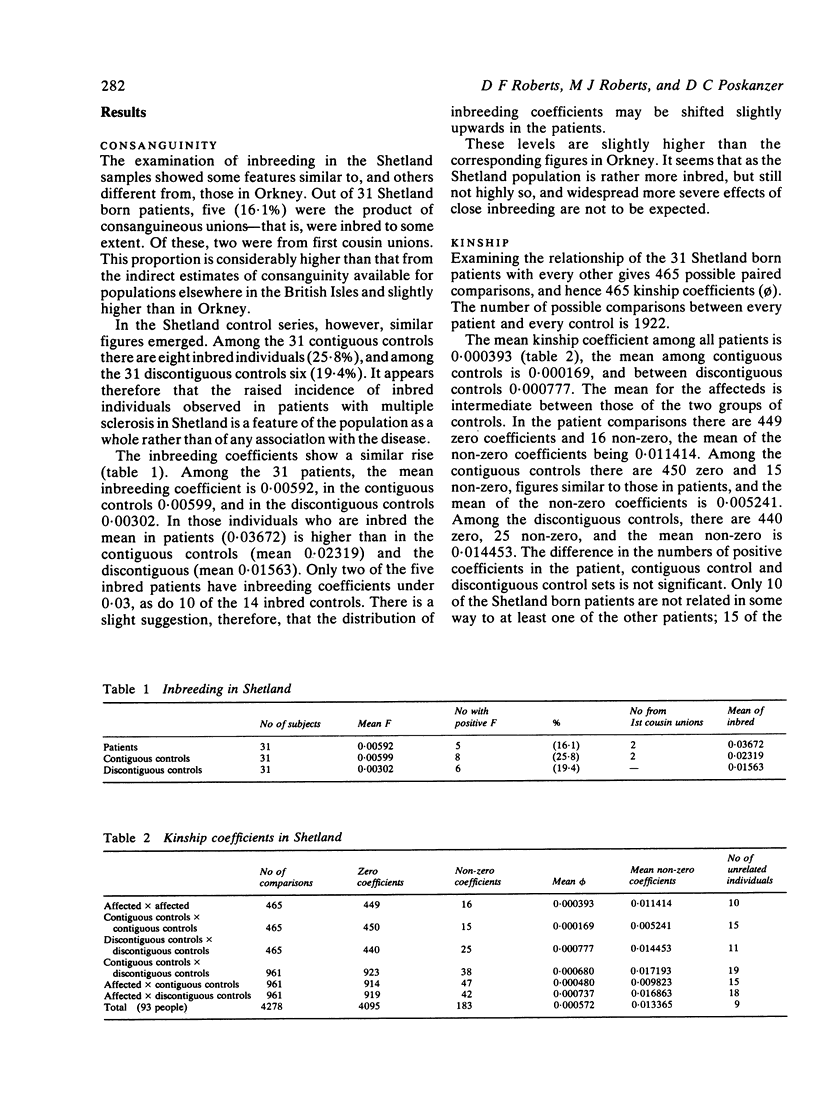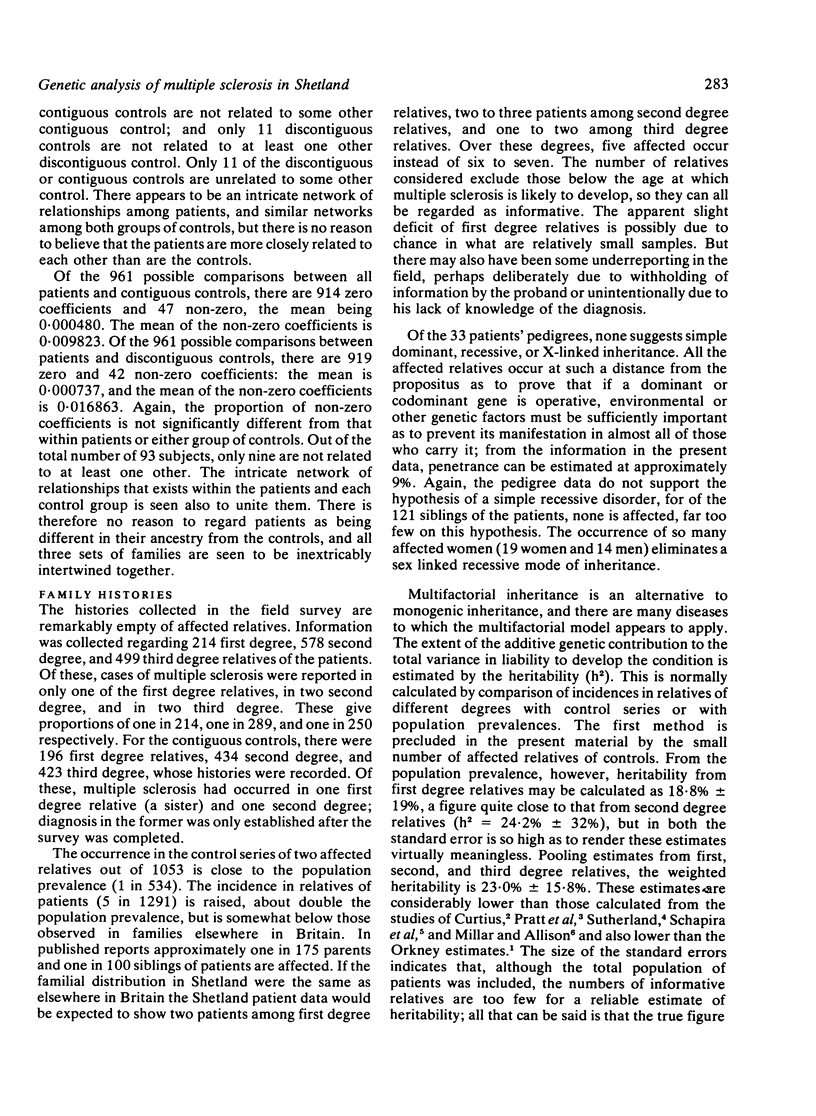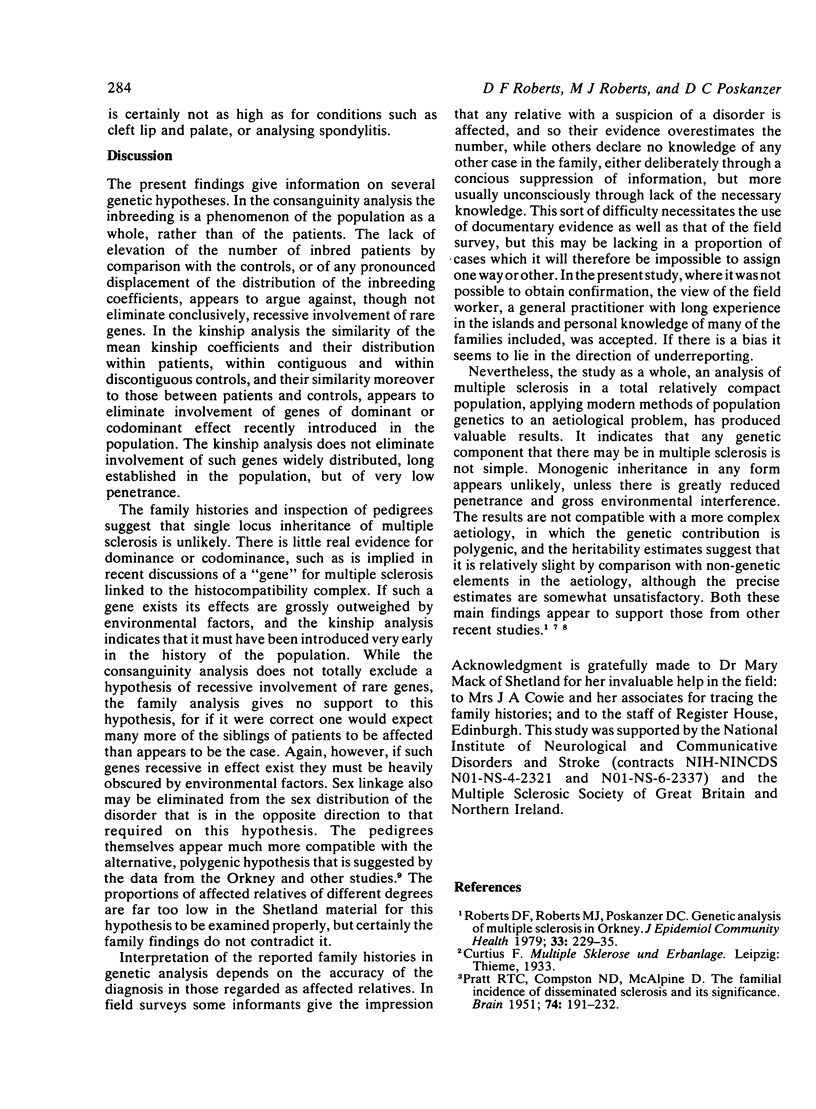Abstract
In a family study of all patients with multiple sclerosis in Shetland the number of inbred patients, although high for Britain and higher than in Orkney, is not higher than the number among controls, and the inbreeding coefficients suggest that there is no recessive involvement of rare genes in the aetiology. The kinship coefficients show close interweaving of ancestries of patients and controls and eliminate from the aetiology any involvement of recently introduced single genes dominant or codominant in effect. Family histories show that single locus inheritance is unlikely. Any genetic involvement is likely to be polygenic, but on a multifactorial hypothesis the estimates of heritability are very low. The findings suggest that the genetic contribution to the aetiology of the disease in Shetland is slight.
Full text
PDF




Selected References
These references are in PubMed. This may not be the complete list of references from this article.
- MILLAR J. H., ALLISON R. S. Familial incidence of disseminated sclerosis in Northern Ireland. Ulster Med J. 1954 Mar;23(Suppl 2):29–92. [PMC free article] [PubMed] [Google Scholar]
- PRATT R. T. C., COMPSTON N. D., McALPINE D. The familial incidence of disseminated sclerosis and its significance. Brain. 1951;74(2):191–232. doi: 10.1093/brain/74.2.191. [DOI] [PubMed] [Google Scholar]
- Poskanzer D. C., Sheridan J. L., Prenney L. B., Walker A. M. Multiple sclerosis in the Orkney and Shetland Islands. II: The search for an exogenous aetiology. J Epidemiol Community Health. 1980 Dec;34(4):240–252. doi: 10.1136/jech.34.4.240. [DOI] [PMC free article] [PubMed] [Google Scholar]
- Poskanzer D. C., Walker A. M., Prenney L. B., Sheridan J. L. The etiology of multiple sclerosis: temporal-spatial clustering indicating two environmental exposures before onset. Neurology. 1981 Jun;31(6):708–713. doi: 10.1212/wnl.31.6.708. [DOI] [PubMed] [Google Scholar]
- Roberts D. F., Bates D. The genetic contribution to multiple sclerosis. Evidence from North-East England. J Neurol Sci. 1982 May;54(2):287–293. doi: 10.1016/0022-510x(82)90189-7. [DOI] [PubMed] [Google Scholar]
- Roberts D. F., Roberts M. J., Poskanzer D. C. Genetic analysis of multiple sclerosis in Orkney. J Epidemiol Community Health. 1979 Dec;33(4):229–235. doi: 10.1136/jech.33.4.229. [DOI] [PMC free article] [PubMed] [Google Scholar]
- SCHAPIRA K., POSKANZER D. C., MILLER H. Familial and conjugal multiple sclerosis. Brain. 1963 Jun;86:315–332. doi: 10.1093/brain/86.2.315. [DOI] [PubMed] [Google Scholar]
- SUTHERLAND J. M. Observations on the prevalence of multiple sclerosis in Northern Scotland. Brain. 1956 Dec;79(4):635–654. doi: 10.1093/brain/79.4.635. [DOI] [PubMed] [Google Scholar]


